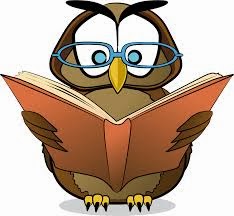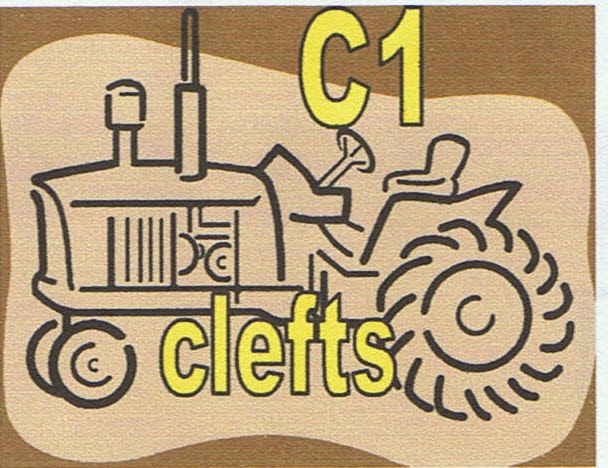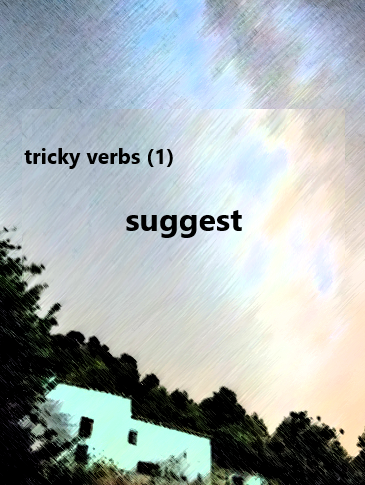B2-C1 ON BOOKS & LIBRARIES
|
Many times I’ve been asked what to read. The
question is much more difficult to answer than it may seem, for if one suggests a book the inquirer enjoys, it’s great, but if
one suggests a book the inquirer does not enjoy, the result will
be a reader lost for life. Fortunately for him/her, the inquirer will go on living happily
believing that books were not made for him/her, and that’s all.
The main point to take into account is that reading must be a pleasure. If you drag through the pages of
a book, if you struggle forward along each line of letters (who the hell has invented
them, letters?), and if finally you sigh in relief when you close the
torturing covers and put it away, as away as possible, it will mean not that you
do not like reading, it will simply mean that you were reading the wrong book for you.
And it is you, and only you, who can find the right book.
Secondly, whatever the type of book we are considering (geography,
history, novel, poetry, or ghost stories) you must learn something from it, even
if you are not aware. To give clear examples: reading Borges’ short stories,
you’ll go deep into Man's different metaphysical systems; reading Jack
London’s, you’ll have a glimpse of the fight for life and evolution. Leaving
aside fiction, which, believe it or not, is a very good teacher, one can
learn not only great but also many things in a direct way, call it books on biology,
palaeontology, maths (Newman, for instance), physics. Each book is waiting
for its reader to turn up (even if written two and half millennia ago -don't miss Sofocles, for instance). So don’t
let it wait, go and look for it.
Allow me an aside on science books before attempting to answer the what-to-read?”dilemma: .
Contrary to what is thought, science books are not that difficult. Anybody can very well
read Shroëdinger, or Damasio, or Monod, or Hawkins (include Einstein) or
Pinker, or Arsuaga, or Agustí, and, surprisingly, understand. Why? It is
clear: those people wrote those books to make money; to make money you must
sell many books; to sell many books, what you put in it must be easily
understood by the layman (not specialist); when it comes to real publishing
on whatever discipline these people are specialized in, they do not write
books, they write articles (long ones, obviously, if compared with a newspaper
one), which are published in very prestigious magazines (Nature, Science,
etc, that you must have heard of). I am almost sure that, for a learner of
English, a good science book could be easier to understand than any novel by
Conrad or Hardy. A personal anecdote may be helpful: as a student of philosophy,
I got to heaven the day I discovered that understanding Plato or Aristotle themselves
was easier than understanding those authors who explained how to understand
them.
So, “What to read”. You simply must try, one book after the other. If I
am asked to recommend a book considering the difficulty of the language, I could give an answer, but nevertheless you yourselves would be
the best judges. Here is a simple recipe: just open the first page and if you find more than 8 or 10
words you neither know nor can deduce the meaning of, that is not your level (an authentic book may be your level in spite of not being graded). Very important as well, is the density of
information, which is not a foreign language feature: if you pay attention to
what your read in your own language you’ll see that the denser the
information the more difficult the text.
In general, I dare recommend books by, for example, Agatha Christie,
Arthur Conan Doyle, Patricia Highsmith, Bram Stoker (Dracula), authors I do
not like, that I do not read, which does not mean they are bad. (Contrary to
what most people believe, our likes, even of a majority, have nothing to do
with the quality of a book.).
Let me give you some links where you can acquire all sorts of books,
free and with the guarantee of time.
You must click on the link below, and the address will pop up:
LIBRARIES
DICTIONARIES
THE SPANISH PAGE:
This you must see at least once in your life. Take half an hour and go through it or browse or surf or whatever you want to call it. Probably one of the best organized language sites I've ever seen. You have some 60 dictionaries, newspapers, articles ranking from football to ones on the origin of the Spanish language. And even an Argentine slang dictionary, very humorous.
I think it is run by all the Academias de la lengua Española (RAE, Argentina, Colombiana, Chilena, Hondureña, etc):
ON ELECTRONIC BOOKS:
If you want one, which I suggest you should have, get a good one with touch screen. I have one which has some 8 dictionaries (different languages: English 3, bilingual Enlgish: Spanish, French, Italian, German) among which there is an "Oxford" for which, at the bookshop, you would pay much more than you would for the electronic book.
|




Comentarios
Publicar un comentario